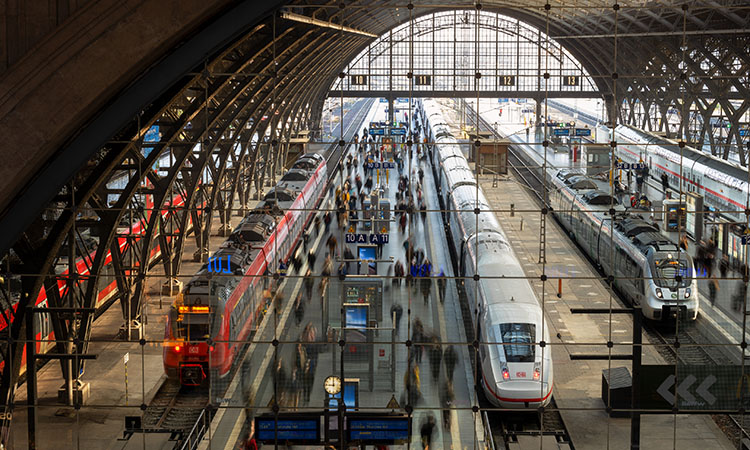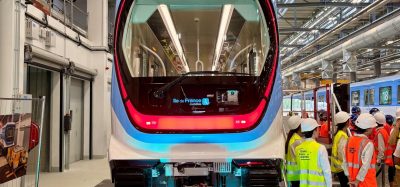DB Group returns to profitable business
Posted: 2 August 2022 | Elliot Robinson (Editorial Assistant - Global Railway Review) | No comments yet
For the first time since the COVID-19 pandemic, the revenues of the DB Group rose up to 28.4 per cent as DB generated €876 million in operating profit in first half of 2022.


Credit: Deutsche Bahn AG/Max Lautenschläger
For the first time since the COVID-19 pandemic began, Deutsche Bahn (DB) has generated an operating profit, returning DB to its path of profitable growth. DB closed out the first half of 2022 with adjusted earnings before interest and taxes (EBIT adjusted) of €876 million. Group revenues increased by 28.4 per cent to roughly €28.0 billion. Many more passengers used DB’s regional, local, and long-distance services. Demand for international freight forwarding and logistics was also higher than ever before.
Operating profit (EBITD adjusted) were up by around €1.9 billion compared with the first half of 2021. At that time, the global COVID-19 pandemic had driven DB into the red, to the tune of nearly €1 billion. Altogether, DB’s core business lost over €10 billion due to the COVID-19 pandemic. DB Schenker, DB’s logistics subsidiary, made the largest contribution to DB’s current success by far. It nearly doubled its operating profit compared with the first six months of 2021 to around €1.2 billion.
Earnings, revenues, and volume in DB’s core business also rose considerably overall. In the first six months of the year, 59.1 million passengers used DB’s long-distance trains. That was a year-on-year increase of 117 per cent. Some 725 million passengers used DB’s regional and local trains, an increase of 60 per cent. DB’s volume sold in rail passenger transport grew by 109 per cent to 36.4 billion passenger kilometres in the first half of 2022. DB Cargo posted slight increases in revenues (up 5.6 per cent) and volume sold (up 1.2 per cent), but also faced a negative impact from the war in Ukraine and reduced capacity due to construction.
Related news you will enjoy:
Siemens Mobility and Deutsche Bahn present new hydrogen train
“The fact that our passengers have returned so quickly shows us that it was definitely the right decision to stay the course even in difficult times and prepare for robust growth with new trains, better service and more staff,” Dr. Richard Lutz, CEO of DB in Berlin, said. “We have done a great deal to equip DB for booming demand. More ICE trains serve Germany and Europe now than ever before.”
Although DB has continued to modernise and build at record levels, the rail infrastructure is not currently keeping pace with traffic growth. The result has been more congestion and delays in the rail network. In the first half of 2022, 69.6 per cent of long-distance trains reached their destinations on time. That figure was 79.5 per cent in the first six months of 2021. The overall on-time rate for DB rail passenger services in Germany was 92.5 per cent in the first half of the year. Train kilometre on track infrastructure rose by 2.7 per cent to over 563 million train-path kilometres, around 20 million more than before the COVID-19 pandemic.
DB, together with the German government, continued to invest heavily in the first half of 2022. Net capital expenditures climbed by 3 per cent to €2.7 billion. Gross capital expenditures of €5.4 billion in total were invested primarily in rail infrastructure in Germany, as in previous years. As of June 30, 2022, net financial debt, at €30.5 billion, was 4.8 per cent higher than at the end of the previous year but remained within the expected range.
“The first half of 2022 was Schenker’s most successful half-year in its 150-year history as a logistics company,” Dr. Levin Holle, CFO for DB, said. “DB Schenker played a major role in bolstering the DB’s favourable performance overall.”
There is a great deal of uncertainty associated with the forecast for 2022 as a whole since the war in Ukraine and the COVID-19 pandemic remain unpredictable. Nevertheless, DB expects to close out the year with much higher revenues and a much better operating profit than forecast in March.
DB currently expects an adjusted EBIT of more than €1 billion for the year as a whole. Revenues are expected to grow to more than €54 billion. Together with the German government, which is DB’s sole shareholder, the company plans to increase its capital expenditures in the current year to over €16 billion gross and over €6.5 billion net. Once again, capital expenditures will exceed the previous year’s already high level.
Related topics
Coronavirus/COVID-19, Funding & Finance, High-Speed Rail, Passenger Experience/Satisfaction








